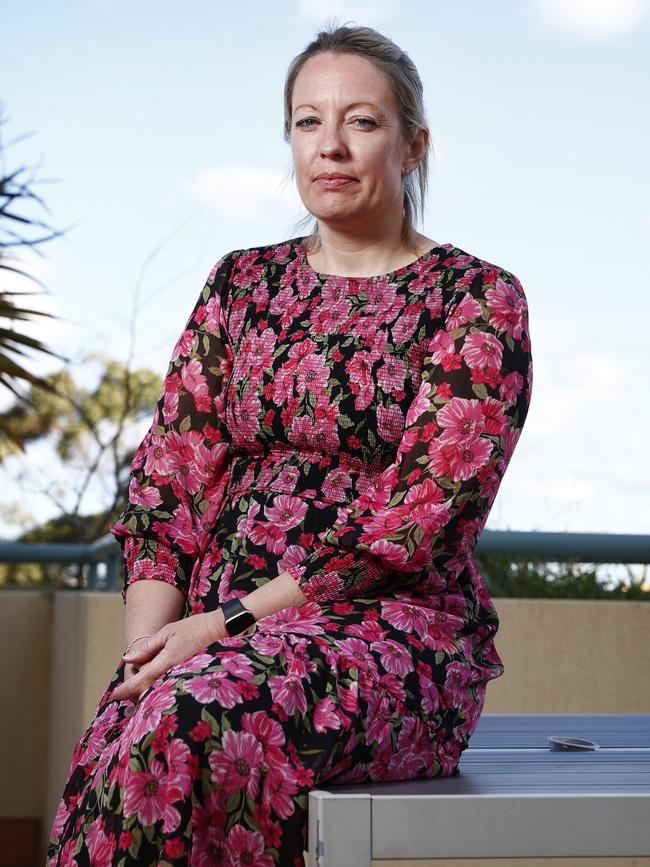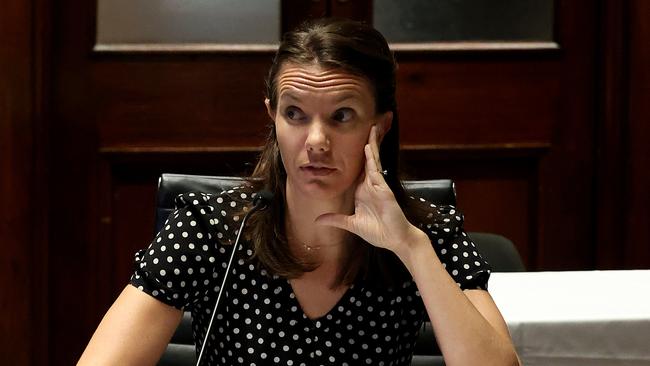Housing crisis the ‘number one’ reason women trapped in domestic violence relationships
Battered women are struggling to leave their abusive partners because the state’s crippling housing crisis is forcing them to choose between a violent home and no home at all.
NSW
Don't miss out on the headlines from NSW. Followed categories will be added to My News.
Abused women are struggling to leave their abusive partners because the state’s crippling housing crisis is forcing them to choose between a violent home and no home at all.
Experts say housing is the “number one” deterrent to women escaping domestic violence and the fear of becoming homeless is keeping families “trapped” in abusive homes.
Government programs designed to subsidise rent for these families barely make a dent in the astronomical amounts being asked of tenants and a shortage of housing is forcing many to move away from whatever little support they have.
Full Stop Australia chief executive Hayley Foster said the current price of housing forces people to delay escaping or just stay in an abusive home.
“Five years ago if you asked a DV service what the major priority was, they would say case work support … Now without fail, the number one issue facing people escaping domestic and family violence is a lack of access to affordable housing options,” she said.

“It’s absolutely hands down the biggest issue facing someone. When we look at numbers. It’s why so many women are trapped in abusive households and their children are also trapped because of this housing crisis. Now, the price of housing is such that you need to rely upon two incomes to sustain yourself.”
Ms Forster said on any one night, close to 50,000 Australian women are homeless because of domestic violence.
Relationships Australia chief executive Elisabeth Shaw said she had also seen the same trend unfold.
“There is a lack of housing and often they are trying to find something with children, they feel very stuck,” she said.
“Even people with an income who would say I am able to be independent may not find something,” she said.
Ms Shaw said many women were being prized out of areas where they had access to emotional or family support after the breakdown of a relationship due to violence.

Rachael Natoli left her violent home with two toddler sons seven years ago and was moved between five different temporary homes in just six weeks.
Now, the mum-of-two runs her own domestic violence support group and says the situation has only gotten worse.
“We became homeless and went to Housing NSW who put us in a motel, because no refuge or shelter was available … While the motel was clean, I couldn’t cook for my kids. I had a kettle, microwave and toaster,” she said.
“Not having somewhere safe to go, like another home, was the main reason I stayed for as long as I did.”
Ms Natoli and her kids were finally able to find some crisis accommodation but she said the clients she works with today are frequently choosing to stay in violence because the alternative is homelessness.
“We had one (client) who was homeless for over two years. She was bouncing along around boarding houses, refuges, and really poor levels of accommodation,” she said.
“Another family we‘ve been assisting where there has been a violent male. They wanted to leave while he was overseas but they didn’t want to leave into homelessness.”
Labor Housing spokesman Rose Jackson said it was “unacceptable” that domestic violence survivors were being forced to return to their perpetrators.

“Taking the step to leave a violent home is often the hardest, but to have to return because as a society we can’t manage to provide affordable housing is just devastating,” she said.
“I have heard stories of women living in crisis refuges for months and months, applying for hundreds of rental properties and getting rejected from every one.
“The NSW housing crisis is trapping women in violent homes and forcing them into homelessness – the NSW Govt’s limited response is to invest in more crisis refuges, which are a welcome but not a permanent and stable housing solution.”
Domestic Violence Minister Natalie Ward said the government had invested an additional $484.3m into family and domestic violence.
“We know that DFV is the leading cause of homelessness for women and children, with almost 40 per cent of the people who accessed specialist homelessness services across NSW in 2019-20, reporting that they had experienced domestic abuse.”
If you or someone you know is experiencing family, domestic and sexual violence, please call 1800 FULL STOP or 1800 RESPECT.





